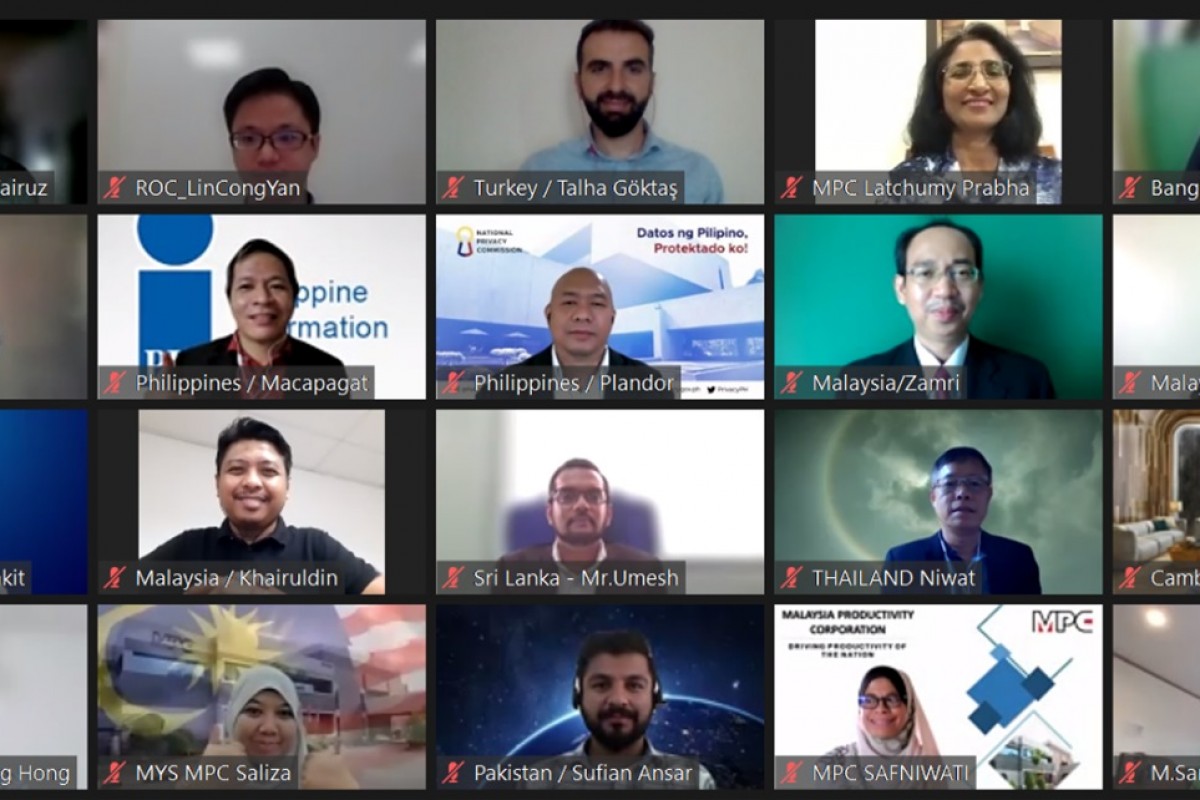
The Development Academy of the Philippines (DAP) continues to promote and conduct scientific, inter-disciplinary, and policy-oriented research education and training for Filipinos.
It has partnered with international organizations and corporations which brought together experts in interdisciplinary fields to enable initiating and catalyzing exchange of ideas and expertise on development activities.
Recent to the various trainings it has conducted is the Workshop on Cybersecurity and Network Resilience Approaches for Industry 4.0.
DAP, in partnership with Asian Productivity Organization (APO), in cooperation with the Malaysia Productivity Corporation (MPC), conducted a workshop through a virtual platform for the Filipino participants to learn about the fundamentals of cybersecurity and network resilience approaches in relation to Industry 4.0.
Three IT officers from the country’s government sector: Mr. Noel Macapagat from the Philippine Information Agency (PIA); Mr. Jose Ryan P. Babon from the National Economic Development Authority (NEDA); and Mr. Lennard A. Plandor from the National Privacy Commission were nominated, selected, and participated in the workshop.
They were able to learn and exchange ideas with 13 other participants from Bangladesh, Cambodia, Fiji, India, Islamic Republic of Iran, Malaysia, Mongolia, Nepal, Pakistan, Republic of China, Sri Lanka, Thailand, Turkey and Vietnam.
The three-day workshop was led by IT experts from the host country, namely: Mr. Anwer Yusoff, Mr. Gary Kong Wai Keat, and from the Philippines, Mr. Dominic Ligot.
Mr. Yusoff, Malaysia’s Cyber Security Industry Engagement and Collaboration department head, discussed the need for a National Cybersecurity Framework for Public Sector to provide an elevated perspective of all the necessary components to be considered by respective government ministries and agencies to develop their individual cybersecurity policy and the respective governance, as well as to ensure that all activities carried out in their organization adhere to the obligatory requirements.
Necessary activities to continuously and consistently enhance the national cybersecurity framework are the sharing of information amongst relevant parties; cyber incidents response and coordination; innovative and collaborative research; capacity building; and cyber security awareness and education.
Participants also get to learn from the sharing of Malaysia’s on-going effort in digital transformation with its national program called National 4IR Policy and MyDIGITAL; which is a national initiative to transform Malaysia into a digitally-driven, high-income nation and a regional leader in the digital economy.
The Malaysia Digital Economy Blueprint spells out the efforts and initiatives to deliver the aspirations of MyDIGITAL and the Blueprint charts the trajectory of the digital economy's contribution to the Malaysian economy and to build the foundation that drives digitalization across Malaysia which includes addressing the digital divide.
The Malaysian IT expert discussed recent notable global security breaches, cybersecurity incidents and cyber-attacks and how their government acted on it.
Mr. Gary, Security Consultant of the YNY Technology Sdn. Bhd, and also an Operational Technology (OT) security expert, explained the cybersecurity vulnerabilities in Industry 4.0 systems, particularly in control systems protocols, unprotected connections, neglect of periodic infiltration tests, inability to manage network devices effectively, and untrained personnel. He also shared some approaches and their practice on how to assess the risks involved in cyberattacks in Industry 4.0.
Mr. Dominic Vincent Ligot, founder and chief technology officer of the CirroLytix Research Services, highlighted the regulatory dimensions in cybersecurity as well as the options of regulation and self-regulation leading to current trends in cyber regulation and ways forward by advancing a wide variety of policy initiatives that address a new type of challenges, threats, risks involved in advancing further Industry 4.0 adoption.
The Filipino IT experts are now in the process of integrating learnings and workshop outputs into their respective line of work.
“The Workshop on Cybersecurity and Network Resilience Approaches gave me an understanding and consciousness on the information security requirements of the ICT services that the unit I belong, must take heed. To note, one of the practical applications of such understanding and consciousness has been my involvement as the project lead for the ongoing Information Security Management System (ISMS) / ISO 27001 readiness project in my agency, where I made attempts to incorporate the learnings from the workshop.” Mr Ryan Babon of NEDA said.
NPC’s Mr. Lennard Plandor said, “the workshop on Cybersecurity and Network Resilience enables our agency to quickly, effectively, and efficiently raise the level of cybersecurity awareness and knowledge across the agency. This is integrated in all aspects of privacy impact assessments, privacy management programs, planning and procurement of infrastructure projects, most especially systems that involve handling and processing of personal data and sensitive information.”
The Philippine Information Agency is currently in the process of building a Public Service Continuity and Disaster Recovery infrastructure, applying concepts, standards and best practices learned from the workshop. The agency has also scheduled knowledge sharing activities to raise the awareness of the government communicators towards cybersecurity and network resiliency. (NM/PIA-MISD)



